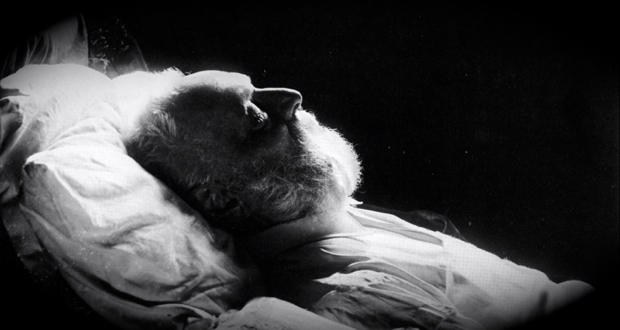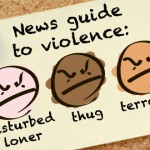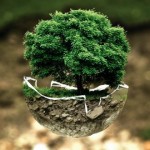The A to Z of Death
Part 3
Click here for part 1 | Click here for part 2
The Throes of Death
Allāh says,
وَجَاءَتْ سَكْرَةُ الْمَوْتِ بِالْحَقِّ ۖ ذَٰلِكَ مَا كُنتَ مِنْهُ تَحِيدُ
“The throes of death will come in truth, this is what you were trying to escape…”[1]
This āyah tells us that all will experience the throes and pangs of death, and for the sinner and disbeliever they will be exceptionally painful,
وَلَوْ تَرَىٰ إِذِ الظَّالِمُونَ فِي غَمَرَاتِ الْمَوْتِ وَالْمَلَائِكَةُ بَاسِطُو أَيْدِيهِمْ أَخْرِجُوا أَنفُسَكُمُ ۖ الْيَوْمَ تُجْزَوْنَ عَذَابَ الْهُونِ بِمَا كُنتُمْ تَقُولُونَ عَلَى اللَّـهِ غَيْرَ الْحَقِّ وَكُنتُمْ عَنْ آيَاتِهِ تَسْتَكْبِرُونَ
If you could only see the wicked in their death agonies, as the angels stretch out their hands to them saying: Let out your souls, today you will be repaid with a humiliating punishment for saying false things about Allāh and for arrogantly rejecting His signs.[2]
The time of death is very severe, a person is in pain and apprehensive of what is to come. Allāh, Himself, refers to death as a calamity:
فَأَصَابَتْكُم مُّصِيبَةُ الْمَوْتِ
The calamity of death struck you.[3]
The Messenger of Allāh (sallAllāhu ‘alayhi wasallam) said, “Do not long for death because the terror that follows death is immense. It is a sign of blessing to live a long life so that a person is given the opportunity by Allāh to repent.”[4]
When we look to the state of our Messenger, Muḥammad (sallAllāhu ‘alayhi wasallam) as he passed on, we can see the difficulty that he experienced. He (sallAllāhu ‘alayhi wasallam) would put his hand in water and wipe his face with it, saying,
لاَ إِلَهَ إِلَّا اللَّهُ، إِنَّ لِلْمَوْتِ سَكَرَاتٍ
“Lā ilāha illAllāh, death has its agonies,”
and said, “Allāh, forgive me, have mercy on me, and let me join the highest company.”[5] He would supplicate,
اللهُمَّ أَعِنِّي عَلَى سَكَرَاتِ الْمَوْتِ
“Allah, help me bear the agonies of death.”[6]
Then he held up his hand and started saying, “With the heavenly host…” until he passed away and his hand dropped.[7]
His wife, ‘Āʾishah said, “Allāh’s Messenger (sallAllāhu ‘alayhi wasallam) died on my chest. Having seen him in the throes of death, I will never consider a severe death bad for anyone.”[8]
The throes of death are a final means of expiation for sins committed, or having our ranks raised and it is for this reason that many of the righteous considered them to be a blessing in disguise. ʿUmar b. ʿAbdu’l-ʿAzīz said, ‘I would not like the agonies of death to be reduced for me, for that is the last thing by means of which sin may be expiated for the believer.’
ʿAbdullāh b. Masʿūd said, ‘I went to see the Prophet (sallAllāhu ‘alayhi wasallam) (during his death sickness) and found him suffering from intense pain. I put my hand on him and said, ‘Messenger of Allāh, what pain!’ He said, “Yes, I suffer twice as much as anyone else would.” I asked, ‘Will you get double the reward?’ He replied, “Yes.” Then he said to me, “Allāh will remove sins, just as a tree sheds its leaves, for any Muslim who is afflicted with sickness or any other tribulation.”[9]
However, many scholars point out that at the last instants of death, when the believer receives glad-tidings of what is to come, and wants to meet his Lord, the pain of death pales into insignificance until it gets to the point that he does not feel anything at all.[10]
No one is saved from this hardship except for the martyr. Allāh’s Messenger (sallAllāhu ‘alayhi wasallam) said, “The martyr does not feel anything more when he is killed than one of you feels if he is pinched.”[11]
Signs of a good end
There are numerous ḥadīth which mention signs which indicate a good end. One must bear in mind, when reading them, that these signs are not definitive proofs, they are just indicators:
- Declaring the shahādah
- Dying with sweat on the forehead.[12] The sweat appears as a result of the hardship of death or as a consequence of the shyness the servant experiences when realising he is about to meet his Lord while have committed so many sins.[13]
- Dying on the night of Jumuʿah[14]
- Martyrdom[15]
- Dying on the frontier[16]
- Dying from plague[17]
- Dying from abdominal illness[18]
- Dying from drowning[19]
- Dying from the collapse of a building[20]
- A woman who dies during pregnancy or childbirth[21]
- Dying from burning[22]
- Dying from pleurisy[23]
- Dying from tuberculosis[24]
- Dying while defending ones property[25]
- Dying while defending ones family
- Dying while defending ones religion
- Dying in self-defence[26]
- Dying while doing a good deed[27]
- Getting killed by an oppressive ruler[28]
- Getting murdered
- Praise of the righteous Muslims[29]
Signs of a bad end
- Dying in disbelief or while committing shirk
- Dying while committing sin[30]
- Refusing to say the shahādah at the time of death
- Blame of the righteous Muslims
- Addiction to alcohol[31]
- Ill-treating parents[32]
- Having no ghayrah (sense of honour) for the family
- Sudden death[33] because it strikes a person without affording him the opportunity to repent, do good or even say the shahādah. Many scholars said that this only applies to the sinner who was doing such acts as angered Allāh.[34]
- Dying without repenting from major sins
Saffārīnī said, ‘Some of the scholars said that the things that lead to a bad end are four: being lazy in ṣalāh, drinking alcohol, disobeying and being rude to parents, and harming Muslims.’[35]
Avoid doing innovations
Those around the deceased must avoid falling into innovation, rather they should adhere firmly to the Sunnah at all times. A stark example of this lies with Saʿīd b. al-Musayyab while on his death bed. In his presence was Abū Salamah, and during his illness, Saʿīd fainted. Abū Salamah ordered that his bed be moved so he was facing the Qiblah and when Saʿīd regained consciousness, he asked Abū Salamah if his bed had been moved. He confirmed this and Saʿīd ordered that his bed be moved back to where it was.[36]
What to do when the person has died
- Close the eyes. Allāh’s Messenger visited Abū Salamah when he died and closed his eyes,
إِنَّ الرُّوحَ إِذَا قُبِضَ تَبِعَهُ الْبَصَرُ
When the soul is taken, the eyes follow it.[37]
إِذَا حَضَرْتُمْ مَوْتَاكُمْ، فَأَغْمِضُوا الْبَصَرَ؛ فَإِنَّ الْبَصَرَ يَتْبَعُ الرُّوحَ، وَقُولُوا خَيْرًا؛ فَإِنَّ الْمَلَائِكَةَ تُؤَمِّنُ عَلَى مَا قَالَ أَهْلُ الْبَيْت
When you are in presence of the deceased, close the eyes because the eyes follow the soul (as it leaves) and say good things because the angels say āmīn to what the family are saying.[38]
- Make duʿā for the deceased, and also general duʿā as the angels are there saying āmīn
- Cover the entire body.
When Allāh’s Messenger (sallAllāhu ‘alayhi wasallam) passed away, his entire body was covered with a piece of cloth.[39]
But this is not the case for someone who has died in the state of iḥrām. A man was riding his animal on the Day of ʿArafah and it threw him off, killing him. The Prophet (sallAllāhu ‘alayhi wasallam) said,
اغْسِلُوهُ بِمَاءٍ وَسِدْرٍ، وَكَفِّنُوهُ فِي ثَوْبَيْنِ، وَلاَ تُحَنِّطُوهُ، وَلاَ تُخَمِّرُوا رَأْسَهُ، فَإِنَّهُ يُبْعَثُ يَوْمَ القِيَامَةِ مُلَبِّيًا
Wash him with water and lotus, and shroud him in his two garments. Do not embalm him or perfume him, and do not cover his head and face because he will raised on the Day of Rising saying the talbiya.[40]
- Hurrying with the funeral
أَسْرِعُوا بِالْجِنَازَةِ، فَإِنْ كَانَتْ صَالِحَةً، قَرَّبْتُمُوهَا إِلَى الْخَيْرِ، وَإِنْ كَانَتْ غَيْرَ ذَلِكَ، شَرٌّ تَضَعُونَهُ عَنْ رِقَابِكُم
Hasten the funeral. If it is for a good person, you are hurrying it to good. If it was not, it is evil that you are dropping from your necks.[41]
- Paying off debts
From the deceased wealth. If it is not enough, his relatives are strongly encouraged to pay it off on his behalf.
Saʿd b. Aṭwal’s brother passed away. He had debt of 300 dirhams and he had children. Saʿd wanted to give his brothers wealth to his children, but Allāh’s Messenger (sallAllāhu ‘alayhi wasallam) said,
إِنَّ أَخَاكَ مَحْبُوسٌ بِدَيْنِهِ، فَاذْهَبْ ، فَاقْضِ عَنْهُ
Your brother is being held back because of his debt. Go and pay it off for him.[42]
Once. The Prophet (sallAllāhu ‘alayhi wasallam) prayed Fajr prayer and then a Janāza prayer and then asked for his family to come forward and said,
إِنَّ فُلَانًا الَّذِي تُوُفِّيَ مِنْكُمْ قَدِ احْتَبَسَ عَنِ الْجَنَّةِ، مِنْ أَجْلِ الدَّيْنِ الَّذِي عَلَيْهِ، فَإِنْ شِئْتُمْ فَافْدُوهُ، وَإِنْ شِئْتُمْ فَأَسْلِمُوهُ إِلَى عَذَابِ اللهِ
This man who has died is held back from entering Paradise because of a debt. If you want, ransom him; otherwise surrender him to Allāh’s punishment!
The family then rushed to pay off his debt until none was left.[43]
مَنْ مَاتَ وَعَلَيْهِ دِينَارٌ أَوْ دِرْهَمٌ قُضِيَ مِنْ حَسَنَاتِهِ، لَيْسَ ثَمَّ دِينَارٌ وَلا دِرْهَمٌ
Whoever dies owing a debt, it will be taken from his good deeds on the Day where there is no dīnār or dirham then.[44]
Another narration in Ṭabarānī shows that this only applies to a person who did not intend to pay back the debt.
- Don’t cause physical harm to the body
كَسْرُ عَظْمِ الْمَيِّتِ كَكَسْرِهِ حَيًّا
Breaking the bone of a deceased is like breaking it while he is alive.[45]
- Don’t wail or lament, but crying out of sadness is permissible
Allāh’s Messenger (sallAllāhu ‘alayhi wasallam) wept when his son, Ibrāhīm passed away and said,
إِنَّ العَيْنَ تَدْمَعُ، وَالقَلْبَ يَحْزَنُ، وَلاَ نَقُولُ إِلَّا مَا يَرْضَى رَبُّنَا، وَإِنَّا بِفِرَاقِكَ يَا إِبْرَاهِيمُ لَمَحْزُونُونَ
The eyes shed tears, the heart feels sad, but we will only say things that please our Lord. We are saddened at your passing, O Ibrāhīm.[46]
He (sallAllāhu ‘alayhi wasallam) said,
اثْنَتَانِ فِي النَّاسِ هُمَا بِهِمْ كُفْرٌ: الطَّعْنُ فِي النَّسَبِ، وَالنِّيَاحَةُ عَلَى الْمَيِّت
Two of the people’s practices are disbelief: dishonouring the ties of kinship, and wailing over the dead.[47]
مَنْ يُنَحْ عَلَيْهِ، فَإِنَّهُ يُعَذَّبُ بِمَا نِيحَ عَلَيْهِ يَوْمَ الْقِيَامَةِ
The one who is wailed over will be punished on the Day of Rising because of that wailing.[48]
This applies for the one who wanted it done for him
لَيْسَ مِنَّا مَنْ لَطَمَ الْخُدُودَ، أَوْ شَقَّ الْجُيُوبَ، أَوْ دَعَا بِدَعْوَى الْجَاهِلِيَّة
He is not of us who strikes his face, rips his clothes and makes the call of Jāhiliyyah.[49]
- Announcing the death
Announcing is allowed to let people know of a person’s death and the time of his janāzah, but not if done by way of discontentment with Allāh’s decree, or going door to door, and so on.[50] It is in this latter respect that Allāh’s Messenger (sallAllāhu ‘alayhi wasallam) prohibited announcing death.[51]
When al-Najāshī died, Allāh’s Messenger (sallAllāhu ‘alayhi wasallam) announced his death and prayed the janāzah prayer over him.[52]
- Giving condolences
مَنْ عَزَّى أَخَاهُ الْمُسْلِمَ فِي مُصِيبَةٍ، كَسَاهُ اللهُ حُلَّةً خَضْرَاءَ يُحْبَرُ بِهَا
Whoever consoles his brother during an affliction, Allāh will clothe him with a green garments.[53]
When Allāh’s Messenger (sallAllāhu ‘alayhi wasallam) learned of Jaʿfar’s demise, he encouraged those around them to cook for them because they were engrossed with the death.[54]
[donationbanner]
Source: www.islam21c.com
Notes:
[1] Qāf 50:19
[2] al-Anʿām 6:93
[3] al-Māʾidah 5:106
[4] Ahmad #14604 from Jābir b. ʿAbdullāh. Haythamī 10:336 said the isnād was ḥasan
[5] Bukhārī #6510 from ʿĀʾishah
[6] Aḥmad #24356 from ʿĀʾishah. Ibn Ḥajr, Fatḥ 11:362 said it was ḥasan
[7] Bukhārī #6510 from ʿĀʾishah
[8] Nasāʾī #1830 from ʿĀʾishah
[9] Bukhārī and Muslim
[10] Ibn Ḥajr, Fatḥ 11:365
[11] Tirmidhī #1668, Nasāʾī’ #3161, Ibn Mājah #2802 from Abū Hurayrah. cf. Munāwī, Fayḍ al-Qadīr 4:182 who states that the martyr may even enjoy giving his life willingly for Allāh’s sake.
[12] “A believer dies with a sweaty forehead” [Nasāʾī, al-Kubrā #1967]
[13] Qurṭubī, al-Tadhkirah
[14] “Any Muslim who dies on the day or night of Jumuʿah is protected by Allāh from the tribulation of the grave.” [Tirmidhī from ʿAbdullāh b. ʿAmr]
[15] “A martyr is given seven favours by Allāh: he is forgiven with the first gush of blood, shown his place in Paradise, protected from the torment of the grave, saved from the Great Fear, adorned with the adornments of faith, married to the women of Paradise, and allowed to intercede for seventy relatives.” [Tirmidhī from al-Miqdād]
[16] “Standing guard (on the frontier) for one day and night is better than fasting the days and praying the nights of an entire month. If such a person dies, his good deeds that he used to do continue to accumulate for him; he is provided with his provisions (from Paradise) and he is saved from the interrogator (of the grave).” [Muslim from Salmān]
[17] “Dying from plague is a martyrdom for every Muslim.” [Bukhārī from Mālik b. Anas]
[18] “The one killed by abdominal illness will not be punished in the grave.” [Nasāʾī from ʿAbdullāh b. Yasār]
[19] “The one who drowns is a martyr.” [Muslim from Abū Hurayrah]
[20] “The one who dies under a collapsed building is a martyr.” [Bukhārī from Abū Hurayrah]
[21] “The woman who is killed by the child in her womb is a martyr, it will drag her by its umbilical cord into Paradise.” [Aḥmad from ʿUbādah]
[22] “The person who burns to death is a martyr.” [Abū Dāwūd from Jābir b. ʿAtīk]
[23] “The one who dies from pleurisy is a martyr.” [Aḥmad from ʿUqbah b. ʿĀmir]
[24] “Death from tuberculosis is a martyrdom” [Ṭabarānī, al-Awsaṭ from Salmān]
[25] “Whoever fights someone who is trying to take his property without due right and is killed as a result is a martyr.” [Muslim from ʿAbdullāh b. ʿAmr]
[26] “The person killed defending his property is a martyr. The person killed defending his family is a martry. The one killed while defending his religion is a martyr. The one killed while defending himself is a martyr.” [Abū Dāwūd, Tirmidhī from Saʿīd b. Zayd]
[27] “When Allāh wants good for His servant, He purifies Him.” They asked, ‘How so?’ He replied, “He gifts him with the ability to do good before he passes away.”[Tirmidhī #970 from Anas b. Mālik] “Whoever says lā ilāha illAllāh seeking Allāh’s face, and that is his final deed, he will enter Paradise. Whoever fasts seeking Allāh’s face, and that is his final deed, he will enter Paradise. Whoever gives charity seeking Allāh’s face, and that is his final deed, he will enter Paradise.” [Ahmad #23324 from Hudhayfah]
[28] “The chief of the martyrs is Ḥamza, as well as a man who stands before an unjust ruler, enjoining the good and forbidding the evil, and is killed as a result.” [Ḥākim from Jābir b. ʿAbdullāh. cf. Albānī, al-Ṣaḥīḥah #374]
[29] A funeral procession passed by the Prophet (sallAllāhu ‘alayhi wasallam) and they spoke well of him. He (sallAllāhu ‘alayhi wasallam), “It has become obligatory.” Another funeral procession passed him and they spoke badly of him and he (sallAllāhu ‘alayhi wasallam) said, “It has become obligatory.” They asked him what he meant and he said, “Some of you are stand as witnesses for others.”[Aḥmad #10013 from Abū Hurayrah] “…the one you spoke well of, Paradise became obligatory for him. The one you spoke badly of, Hell become obligatory for him. You are Allāh’s witnesses on this earth. You are Allāh’s witnesses on this earth. You are Allāh’s witnesses on this earth.”[Muslim #949]
[30] “Whoever dies while doing something, Allāh resurrects him doing it.” [Aḥmad from Jābir]
[31] “The person who dies while addicted to alcohol will meet Allāh like an idol worshipper.” [Aḥmad #2453 from ibn ʿAbbās. cf. Albānī, al-Ṣaḥīḥah #677]
[32] “Three people will be prohibited from entering Paradise: one who is addicted to alcohol, one who ill-treats his parents, and one who has no ghayrah and permits evil in his family.” [Aḥmad #5372. cf. Albānī, Ṣaḥīḥ al-Jāmiʿ #3052]
[33] “A sudden death is a sign of anger.” [Abū Dāwūd #3110 from ʿUbaydullāh b. Khālid]
[34] Munāwī, Fayd al-Qadīr; Khaṭṭābī, Maʿālim al-Sunan
[35] Al-Buḥūr al-Zāhirah 1:66
[36] Ibn Abī Shaybah 4:76 and Albānī, Ahkām al-Janāʾiz said it was ṣaḥīḥ
[37] Muslim #920 from Umm Salamah
[38] Ibn Mājah #1455 from Shaddād b. Aws
[39] Bukhārī and Muslim
[40] Bukhārī #1267, Muslim #1206 from ibn ʿAbbās
[41] Bukhāri #1315, Muslim #944 from Abū Hurayrah
[42] Ibn Mājah, Aḥmad #17227
[43] Ṭabarānī, al-Kabīr from Samurah b. Jundub
[44] Ibn Mājah #2414 from ibn ʿUmar
[45] Abū Dāwūd #3207, Ibn Mājah #1616 from ʿĀʾishah
[46] Bukhārī #1303, Muslim #2315 from Anas b. Mālik
[47] Muslim #121 Abū Hurayrah
[48] Bukhārī #1286, Muslim #928 Mughīrah b. Shuʿbah
[49] Muslim #103 from ibn Masʿūd
[50] Ibn Ḥajr, Fatḥ al-Bārī
[51] Tirmidhī # from Hudhayfah
[52] Bukhārī, Muslim from Abū Hurayrah
[53] Bayhaqī, Shuʿab #8843. Albānī, Aḥkām al-Janāʾiz said it was ḥasan
[54] Abū Dāwūd, Tirmidhī








Inshallah
I will die with Allah being pleased with me thank you for the informative information
Jazakallah khair bhai for such important information i will send this site to as many i can. In sha Allah
MASHALLAH
SubhaanAllah !
JazakaAllah khair for a very detailed and yet summarised account of the throes of death.